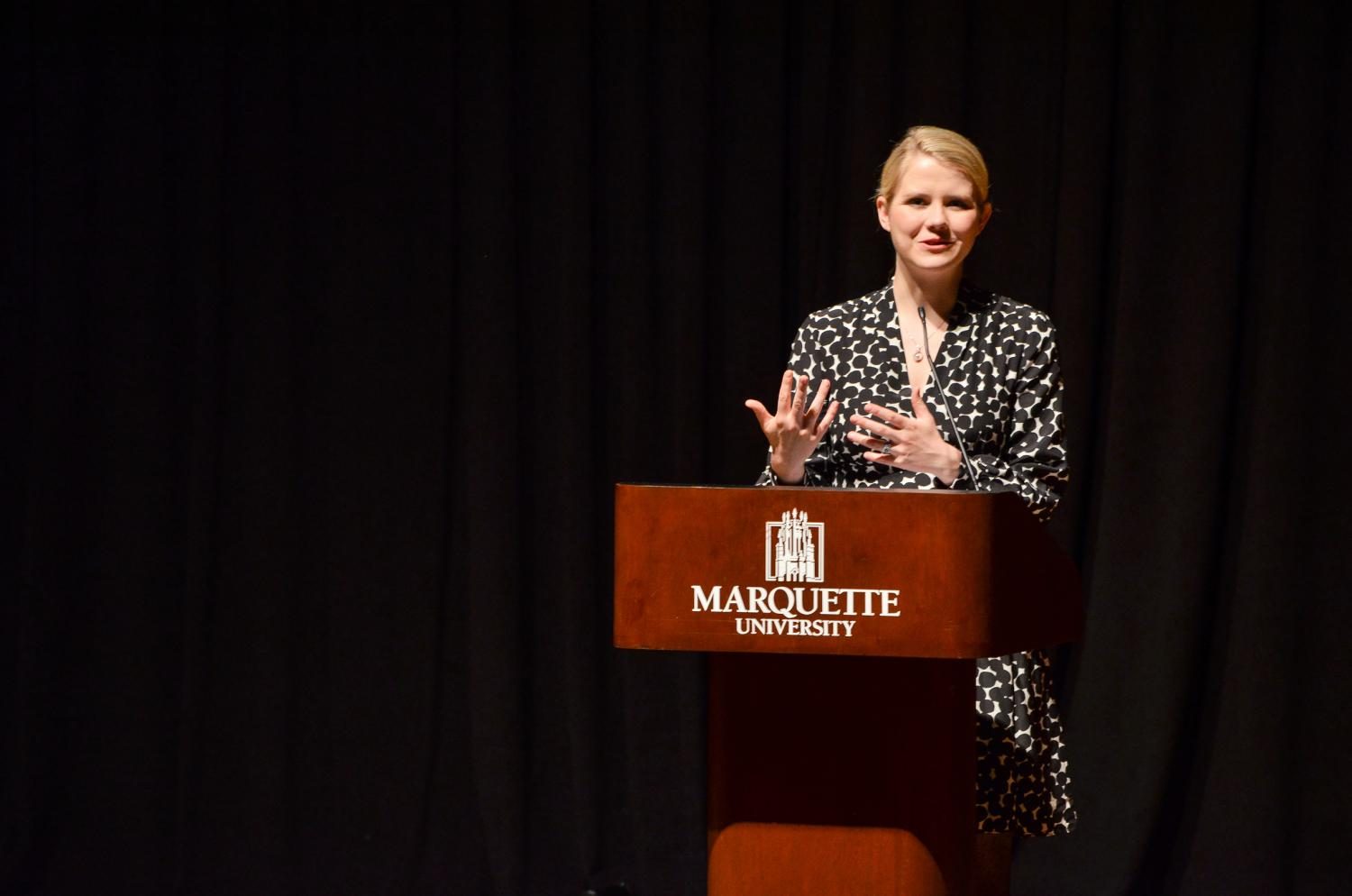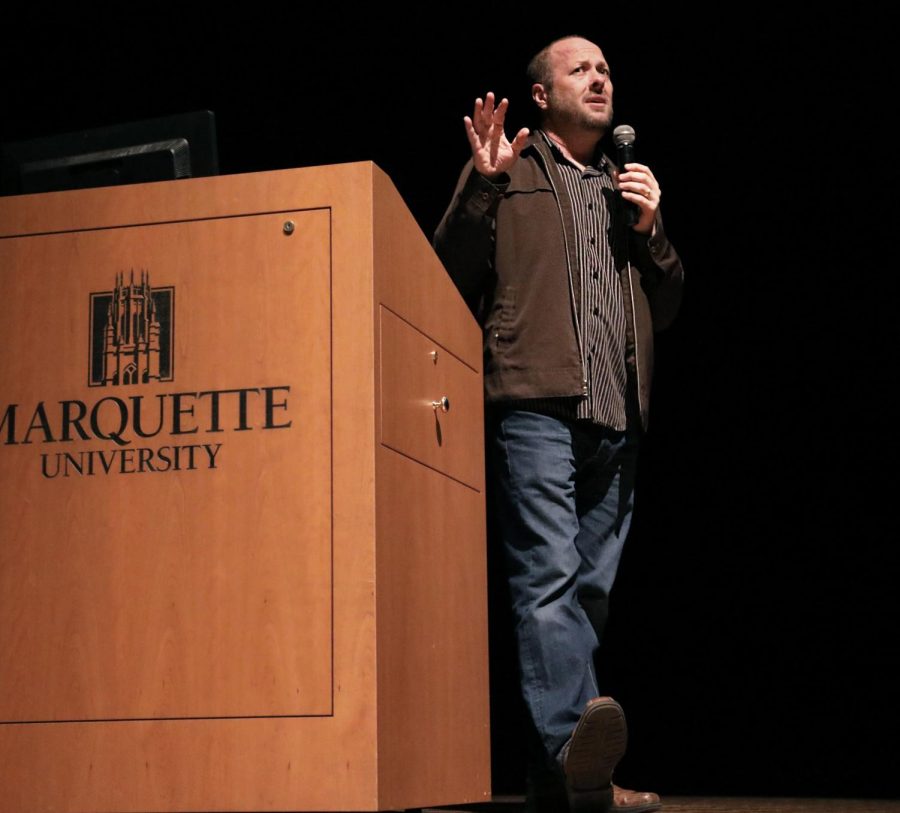When she was kidnapped at 14, Elizabeth Smart didn’t think resilience would be an integral part of her survival.
It has been 15 years since Smart was kidnapped, raped by her abductors and found nine months later in Salt Lake City. Today, Smart travels around the world speaking to others about not letting their pasts dictate their futures.
In her speech on Marquette’s campus today, Smart explained the kind of ordinary girl she was before her kidnapping. She described herself as being a shy, happy child. She loved to play the harp and her mom often volunteered her to play at family weddings.
In living her story, she has chosen to remain a public figure. She is a full-time advocate for the prevention of child abuse. Each of her speeches concludes with the theme of the importance of resilience.
“There are so many things we don’t have control over,” Smart said. “But the one thing we do have control over is how we react.”
After Smart was rescued, her mom told her the best punishment for her abductors was for her to be happy. Each day, Smart decided to not feel sorry for herself. In the face of hurt and tragedy, she decided to not forget her story, but to work every day to be happy.
“Don’t give up,” Smart said. “Keep going. Don’t let events define you.”
This speech was the last installment of Marquette University Student Government’s Speaker Series of the year. Previously, Smart spoke at the 40th anniversary luncheon for The Women’s Center, an organization dedicated to helping those affected by domestic violence and sexual assault in Southeast Wisconsin. Madison Hicks, a freshman in the College of Communication, helped plan the Speaker Series.
“Many college students can relate to Smart’s story on some level,” Hicks said. “I think it is important for college students to hear the importance of not letting adversity define who you are, since college can sometimes be a difficult and pivotal time filled with many changes.”
Other students who saw Smart speak shared similar opinions as Hicks.
“I had seen a documentary about Elizabeth Smart,” Nicole Suter, a sophomore in the College of Health Sciences, said. “She is relatable because, like she said, everyone has hardships, but what matters is how you react because many things are out of your control.”





